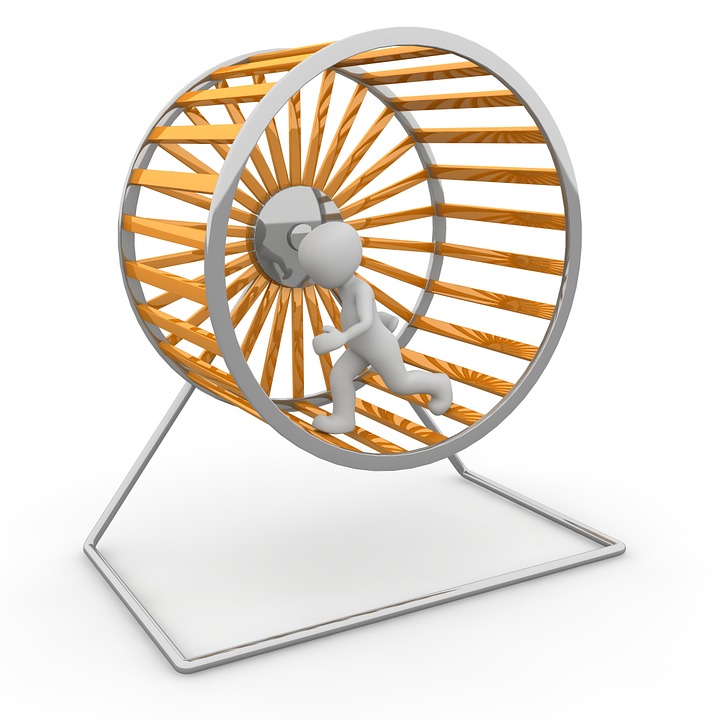You have no idea what good you can accomplish, and what thriving really means, unless you push past your fears and take action.
If you had told me nine years ago when I walked away from a good-paying but soul-sucking corporate job that I would go on to write a New York Times bestseller, give countless speeches and launch a nonprofit investigative journalism organization, I would have questioned your sanity.
I was 54 at the time and just assumed that, because of my age, I would never be able to land another job with a steady paycheck. But I was so burned out at work I finally reached the point that I couldn’t in good conscience keep doing what I was doing. I couldn’t sleep at night. I couldn’t not quit.
It took months to get to that point, though. For a long time, I told myself that I should just stick it out, that retirement wasn’t all that far away. One of the things that made me question that self-talk was a vision of me on my deathbed, overwhelmed with sadness and regret for not doing what I knew in my heart I should do. Or at least not giving it a good try.
What I came to realize was that, like a lot of people, I was afraid to act. Fear was holding me back. And I realized this, too: Not only was I not thriving, I was just waiting to die.
In times of burnout, we all too often pay more attention to the voice in our head that tells us to somehow just cope with it. The voice that warns us against taking a risk. It’s that voice that conjures up all kinds of worst-case scenarios. It never allows you to consider the possibility of a positive outcome from taking a leap. And it’s much louder and more convincing than out the other voice that says, “Go for it. Take that big scary leap.”
All too often the things we do to cope are not healthy. For me it was drinking too much. And like a lot of other people, I bought things I didn’t need, racking up credit card debt and finding out, repeatedly, that instant gratification is just that, gratification that barely lasts an instant. Many of us buy bigger and fancier houses than we need, and take on more mortgage debt than we know we should, further assigning ourselves to a hamster wheel that all too soon seems impossible to get off. We become enslaved to our employer and our creditors.
If you’re on that hamster wheel, commit to take the necessary steps to win back your freedom. Focus on paying off your debt instead of buying more stuff. Even consider moving to a smaller and less expensive place if a bank or mortgage company owns you.
Had I not taken action and made that briefly terrifying leap a few years ago, I know I would not be doing work now that gives me joy and satisfaction—and more exhilaration than I ever experienced in my old career. Just this week—with the help of many amazing people I would never have met if I had kept paying attention to that scaredy-cat voice in my head—I am launching the most ambitious crowdfunding-for-journalism campaign in American history. Our goal for Tarbell, named after the Gilded Age muckraking reporter Ida Tarbell, is to be entirely reader-funded, and our mission is to help achieve a more just and fair society through journalism by holding powerful interests more accountable. We want to do our part to enable everyone to have a decent chance at thriving, starting with being able to get the health care they need without going bankrupt, even with insurance. (Check out our website to learn more.)
As I wrote at the beginning of this piece, you’ll never know what good you can accomplish, how many lives you might be able to touch, if you don’t examine your life, as Socrates advised, and begin living a more fearless life.
Just last night, I got a Facebook message from a young man fighting stage 4 lung and thyroid cancer (and also fighting his insurance company). He asked if I would sign his copy of Deadly Spin, my first book, if he’d send it to me. I don’t recall meeting him, but he told me he had heard me speak a few years ago at a Stupid Cancer conference.
“Thank you for standing up for me and others,” he wrote. “May God bless you tenfold for how you have blessed me and others.”
I know for certain that I will remember that until the day I die, long after I’ve forgotten many of the material things I wish I’d never bought in the first place. I hope it comes to mind when I am on my deathbed.


